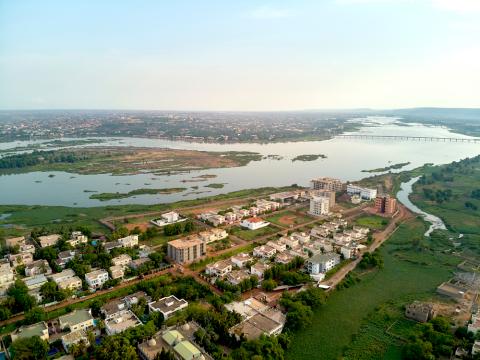
Myanmar delisted from EITI due to political instability
Myanmar is delisted from the EITI, due to stalled implementation and deteriorating conditions for stakeholder engagement.
The EITI Board today decided to delist Myanmar from the EITI due to ongoing political instability and conflict. The situation in the country has made it unfeasible to uphold key aspects of the EITI, including multi-stakeholder governance and data disclosure. The decision marks the country's departure as an EITI implementing country.
Myanmar has been temporarily suspended from the EITI since February 2021 following a military coup, which undermined essential freedoms necessary for effective EITI implementation.
“Since the suspension of Myanmar, the EITI has closely monitored developments in the country and remains deeply concerned about the situation there,” Helen Clark, EITI Board Chair, said. “The conflict has worsened, and extensive consultations with Myanmar stakeholders have highlighted a further deterioration in space for civil society engagement, with reports of intimidation, repression and curtailment of free speech.”
In 2023, CIVICUS, a global civil society alliance that tracks civic space, downgraded Myanmar’s rating to “closed”, the lowest possible rating. Other global monitoring reports, such as those from the Human Rights Watch's World Report, Freedom House and the United Nations, have also documented the declining civic space in the country. International condemnation and sanctions from entities like the US, EU, UK and Canada underscore the severity of the situation.
Moreover, Myanmar’s EITI multi-stakeholder group has been dissolved, and there has been no independently verified information published on the extractive sector in the last three years, making it unlikely for implementation to resume.
Before its suspension, Myanmar’s participation in the EITI significantly contributed to improving governance within its extractive sector. Since 2014, Myanmar’s EITI reporting provided critical data for extractive sector reforms, including information on state-owned enterprises. Myanmar was also among the first EITI countries to launch a beneficial ownership register, facilitating public oversight of ownership and control of extractive companies, including those in the country’s important gems and jade industry.
The decision to delist Myanmar aligns with the EITI Standard and policies recently agreed by the EITI Board for engaging with EITI countries experiencing political instability or conflict. It reflects the ongoing challenges within the country, including political unrest and the suppression of civil society. Despite hopes for improvement, there has been no significant progress, prompting decisive action from the EITI Board.
Moving forward, Myanmar still has the opportunity to reapply for EITI membership if conditions improve. The reapplication process will involve a thorough assessment of Myanmar's previous experience in EITI implementation, including any barriers encountered and measures taken to address them.


